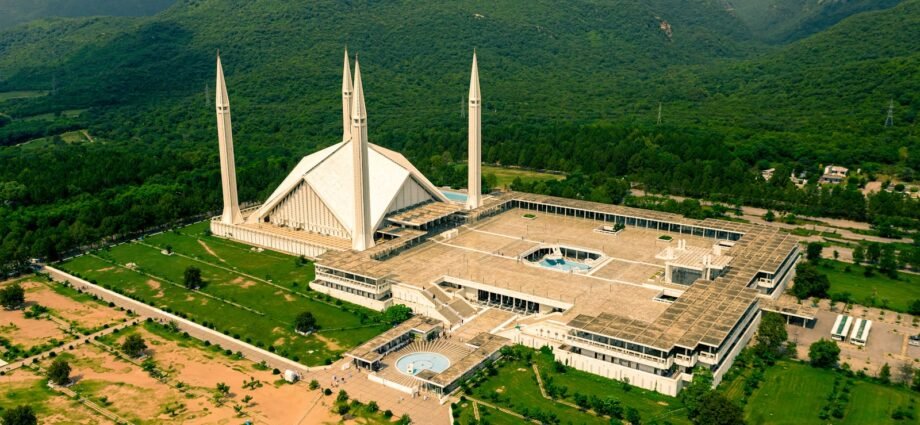Best Tourist Places in Pakistan – Travel Guide
Discover the best tourist places in Pakistan, from Hunza to Lahore. Plan your next adventure with this complete 2025 travel guide!
✨ Introduction
Pakistan, a land of breathtaking natural beauty and rich cultural heritage, offers some of the most diverse and unforgettable travel experiences in South Asia. From the majestic peaks of the north to the ancient ruins of the Indus Valley, every corner of the country is packed with adventure, history, and unmatched hospitality.
Whether you’re an adventure junkie looking to trek through rugged mountains, a history buff exploring ancient civilisations, or simply seeking scenic serenity, this comprehensive guide to the best tourist spots in Pakistan will help you discover the top destinations worth visiting in 2025.
📚 Table of Contents
- Destination Overview
- Best Time to Visit
- Visa & Entry Requirements
- Currency, Language & Local Time
- Safety Considerations
- Travel Itinerary
- Suggested Itinerary (5 to 10 Days)
- Key Attractions & Experiences
- Northern Pakistan (Hunza, Skardu, Fairy Meadows)
- Central & Cultural Highlights (Lahore, Islamabad, Taxila)
- Southern Pakistan (Karachi, Mohenjo-Daro, Makli)
- Alternative Destinations
- Ranikot Fort
- Hingol National Park
- Cholistan Desert
- Traveler Requirements
- Packing List
- Dress Code & Etiquette
- Health & Travel Prep
- Legal & Safety Information
- Entry Rules, Local Laws
- Cultural Dos & Don’ts
- FAQs
- Refund & Cancellation Policies
- Conclusion
- Tags & Call-to-Action
🧭 Destination Overview
📅 Best Time to Visit Pakistan
Pakistan offers year-round travel opportunities, but the best time to visit depends on your destination and activities:
- Spring (March to May): Ideal for sightseeing in cities like Lahore, Islamabad, and Peshawar. Flowers are in full bloom, and temperatures are moderate.
- Summer (June to August): Perfect for exploring northern areas like Hunza, Swat, Skardu, and Fairy Meadows. These regions are cooler while the rest of the country experiences high heat.
- Autumn (September to November): Great for hiking, photography, and cultural tours. The northern valleys display stunning autumn foliage.
- Winter (December to February): Visit southern regions like Karachi, Gwadar, and Mohenjo-Daro. You can also enjoy snow in Murree, Malam Jabba, or Nathiagali.
Tip: Avoid traveling during the monsoon (late July to mid-August) in plains and cities due to flooding and poor road conditions.
🛂 Visa & Entry Requirements
- e-Visa Availability: Pakistan offers an online visa portal for citizens of over 170 countries. Visit: visa.nadra.gov.pk
- Tourist Visa Duration: Typically valid for 30–90 days depending on your nationality.
- Required Documents:
- Passport valid for at least 6 months
- Passport-sized photos
- Travel itinerary or hotel bookings
- Return flight tickets (for some countries)
- Invitation letter (if applicable)
Note: Always double-check visa rules via the official Pakistan Embassy or Ministry of Interior before traveling.
💱 Currency, Language & Local Time
- Currency: Pakistani Rupee (PKR)
- Common denominations: 10, 50, 100, 500, 1000, 5000
- ATMs are widely available in cities, but carry cash in remote areas.
- Languages Spoken:
- Urdu (National language)
- English (Widely used for official and tourism-related communication)
- Regional languages include Punjabi, Pashto, Sindhi, Balochi, and others.
- Local Time: Pakistan Standard Time (PST) – UTC +5
- No daylight saving time was observed.
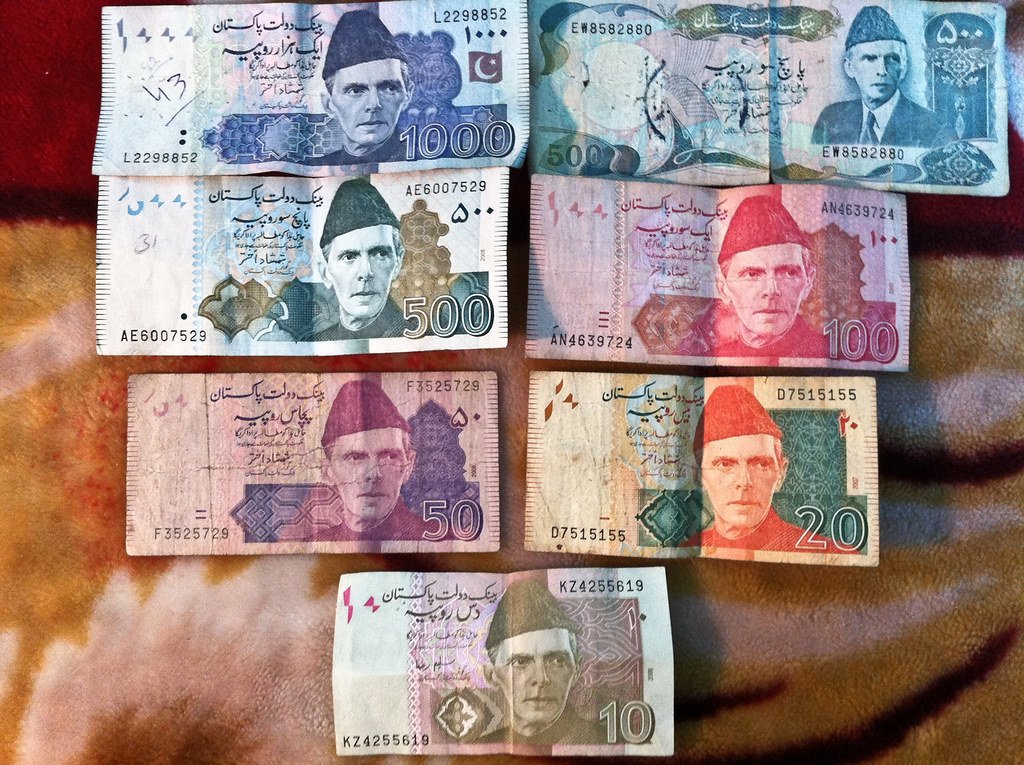
🛡️ Safety Considerations
- General Safety:
- Pakistan has improved its safety protocols in major tourist areas. People widely regard locations like Islamabad, Hunza, and Skardu as safe.
- Police checkpoints exist in many areas for tourist protection.
- Travel Advisory:
- Some regions near the Afghan border, Balochistan interior, and some tribal areas are restricted for tourists without a No-Objection Certificate (NOC).
- Use only registered tour operators for remote or sensitive regions.
- Emergency Numbers:
- Police: 15
- Rescue/Medical: 1122
- Fire: 16
- Tourist Helpline: 1422 (Pakistan Tourism Development Corporation)
Tip: Register with your embassy if you plan to stay for a longer duration or travel to remote areas.
🗺️ Travel Itinerary (5–10 Days in Pakistan)
This sample itinerary is designed to cover the Best Tourist Places in Pakistan in a manageable, enriching route. It blends cultural heritage, natural wonders, and city exploration—ideal for first-time visitors.
✈️ Day 1: Arrival in Islamabad – The Modern Capital
- Morning: Arrive at Islamabad International Airport. Check in at the hotel.
- Afternoon: Visit Faisal Mosque, the largest in South Asia. Explore the Pakistan Monument and its museum.
- Evening: Stroll through Daman-e-Koh for panoramic views of the city and enjoy dinner at Monal Restaurant in the Margalla Hills.
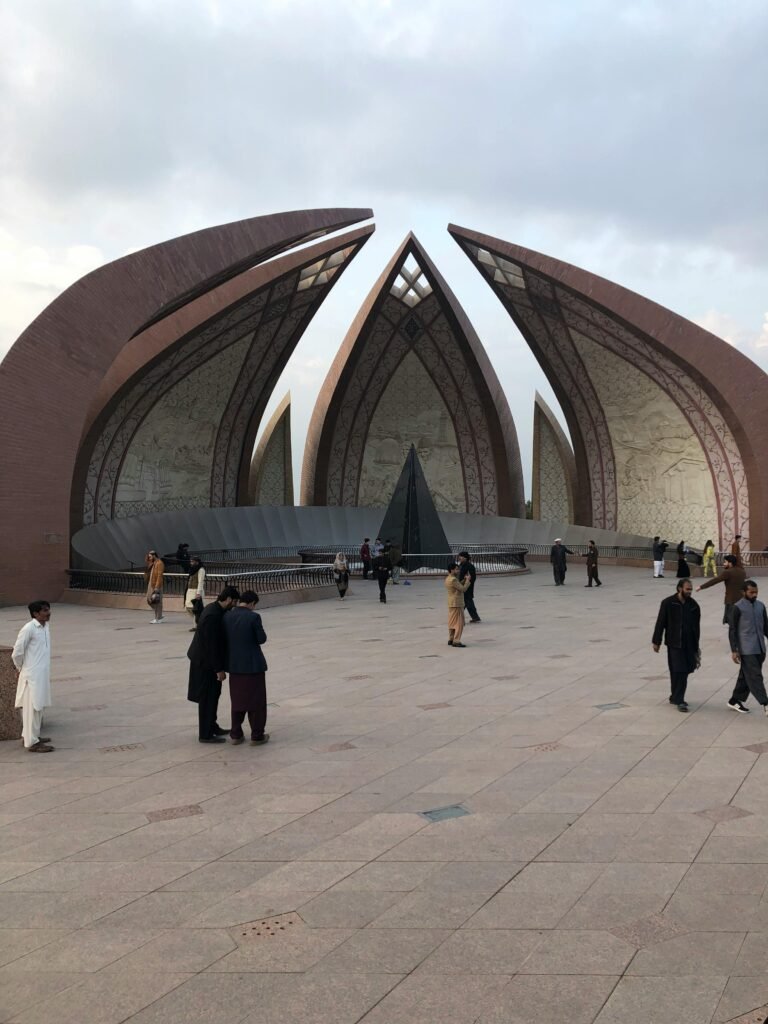
🏛️ Day 2: Day Trip to Taxila & Rawalpindi
- Morning: Drive to Taxila (UNESCO World Heritage Site). Tour ancient Buddhist stupas and the Taxila Museum.
- Afternoon: Explore Rawalpindi Saddar Bazaar for traditional crafts, spices, and street food.
- Evening: Return to Islamabad for overnight stay.
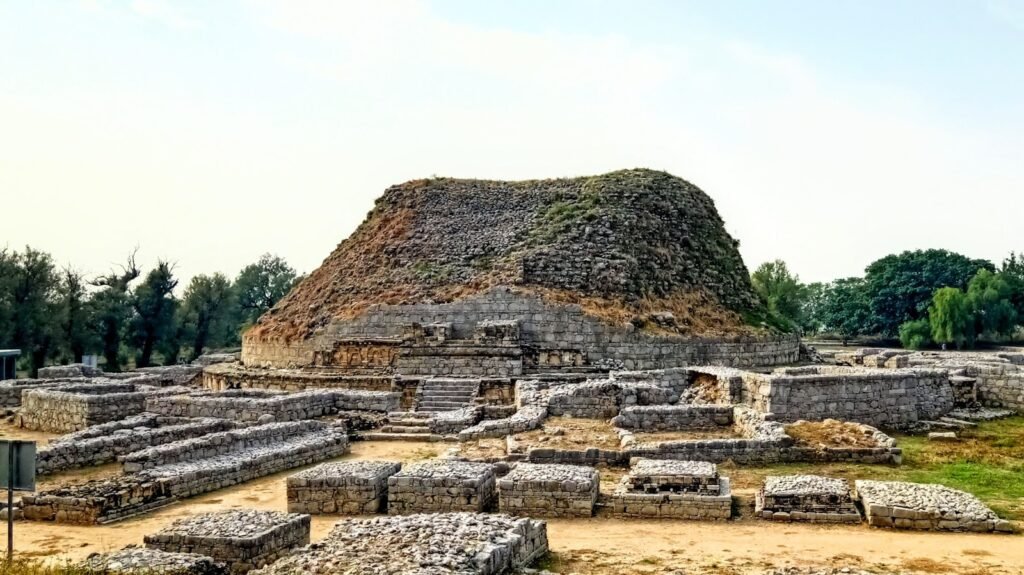
🌄 Day 3: Drive to Murree & Patriata (New Murree)
- Morning: Scenic drive to Murree (1.5 hours). Visit Mall Road and Pindi Point.
- Afternoon: Take the chairlift at Patriata. Hike through pine forests and enjoy snow (seasonal).
- Evening: Stay overnight in Murree or return to Islamabad depending on the schedule.

⛰️ Day 4: Flight to Skardu – Gateway to Northern Beauty
- Morning: Take a direct flight from Islamabad to Skardu. The aerial views of the Karakoram are spectacular.
- Afternoon: Visit Shangrila Resort and Upper Kachura Lake.
- Evening: Enjoy a bonfire at a guesthouse near Lower Kachura Lake. Overnight stay in Skardu.
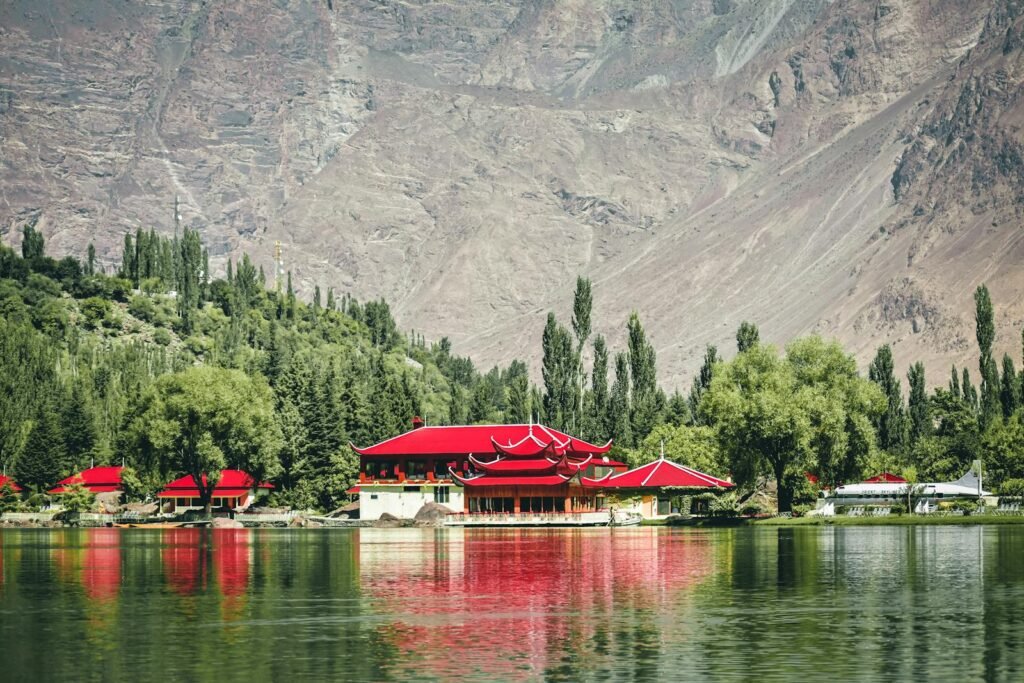
🏔️ Day 5: Skardu Adventure Day
- Morning: Visit Shigar Fort (17th-century palace turned heritage hotel).
- Afternoon: Head to the Cold Desert of Skardu for sand dunes between snowy peaks. You have the option to go on a jeep safari.
- Evening: Return and relax at Sadpara Lake or the local bazaar. Stay overnight in Skardu.

🏞️ Day 6: Drive to Hunza via Gilgit (Approx. 6–7 hours)
- Early Morning: Depart for Hunza. Stop at Junction Point of 3 Great Mountain Ranges near Gilgit.
- Afternoon: Reach Karimabad (Hunza Valley). Visit Baltit Fort and Altit Fort.
- Evening: Sunset at Eagle’s Nest Viewpoint. Overnight stay in Hunza.

🏕️ Day 7: Hunza Exploration Day
- Morning: Visit Attabad Lake (boating or jet skiing). Continue to the Passu Cones and Hussaini suspension bridges.
- Afternoon: Drive to Khunjerab Pass (China border) – highest paved border crossing in the world.
- Evening: Return to Hunza. Enjoy local walnut cake and yak karahi at a traditional café.
🕌 Day 8: Return Flight to Islamabad – Explore Lok Virsa & Saidpur Village
- Morning: Flight back to Islamabad.
- Afternoon: Visit the Lok Virsa Heritage Museum and Saidpur Village for local arts, crafts, and food.
- Evening: Shopping at Centaurus Mall or Jinnah Super Market.
🌊 Day 9: Optional Trip to Lahore – Heart of Culture
(Drive 4–5 hours or fly from Islamabad)
- Morning: Visit Badshahi Mosque, Lahore Fort, and Minar-e-Pakistan.
- Afternoon: Explore Shalimar Gardens and the Walled City of Lahore.
- Evening: Watch the Wagah Border Flag Ceremony. Try Lahori food at Food Street (Fort Road).
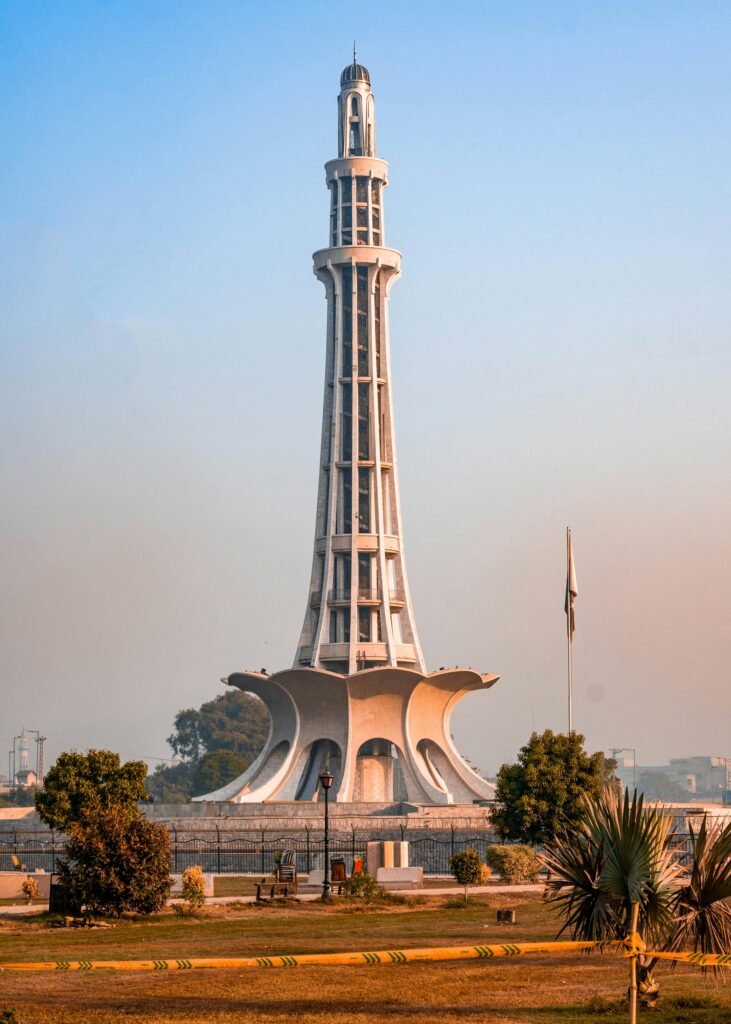
📸 Day 10: Departure
- Morning: Final shopping or quick museum visit (National Art Gallery or Pakistan Museum of Natural History).
- Transfer to the airport for the return flight home.
Custom Tips:
- You can swap Murree for Swat Valley (if road conditions allow).
- If you skip Lahore, add an extra day in Hunza or explore Fairy Meadows (requires hiking & Jeep).
- Plan domestic flights early, as seats to Skardu and Gilgit fill fast, especially in peak season.
🌟 Key Attractions & Experiences
Pakistan offers a rich mosaic of cultural wonders, natural beauty, ancient civilizations, and thrilling adventures. This section highlights top must-see attractions and authentic experiences across the country.
🕌 1. Faisal Masjid (Islamabad)
- One of the largest mosques in the world.
- Iconic modern Islamic architecture inspired by a Bedouin tent.
- Nestled in the Margalla Hills with scenic surroundings.
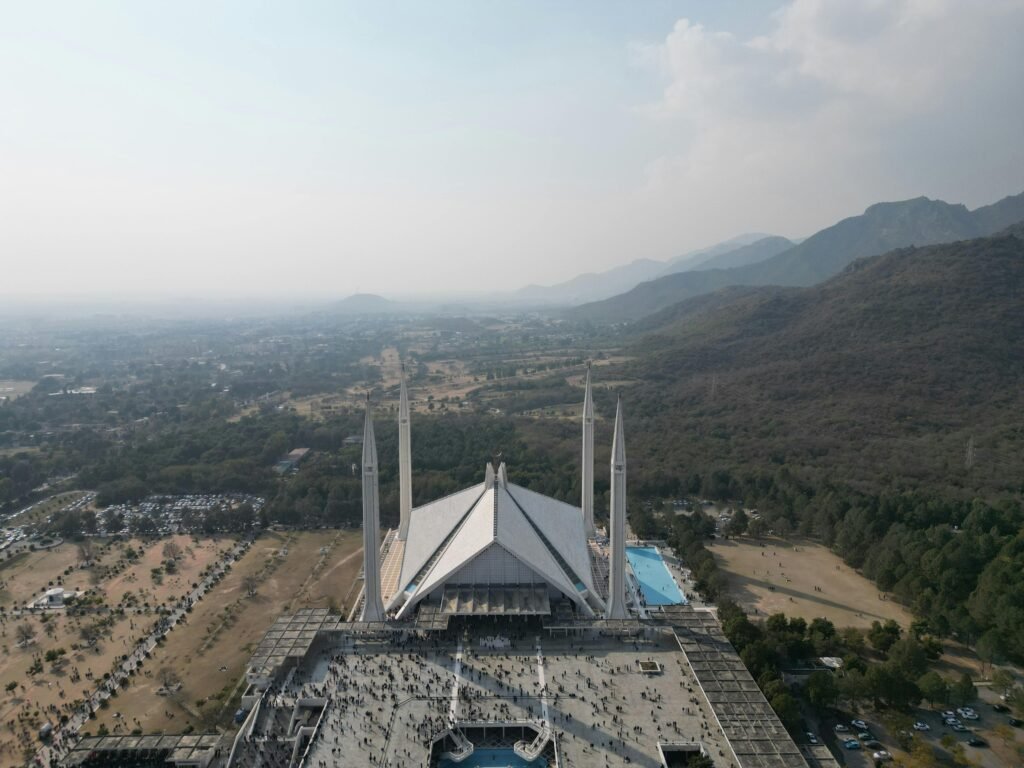
🏛️ 2. Lahore Fort & Badshahi Mosque (Lahore)
- UNESCO World Heritage Site with Mughal architecture.
- Badshahi Mosque is among the grandest in South Asia.
- Fort galleries showcase centuries of Islamic and Sikh-era art and weaponry.

🧱 3. Mohenjo-Daro (Sindh)
- Ancient Indus Valley Civilization site dating back to 2500 BCE.
- Explore advanced urban planning, drainage systems, and granaries.
- Perfect for archaeology and history lovers.
🏞️ 4. Hunza Valley (Gilgit-Baltistan)
- Pristine valley with crystal-clear rivers and mountain views.
- Highlights: Attabad Lake, Passu Cones, Baltit Fort, Altit Fort.
- Famous for the longevity of its people, apricots, and breathtaking landscapes.
🏔️ 5. Fairy Meadows & Nanga Parbat Base Camp (Gilgit-Baltistan)
- Alpine meadows with majestic views of Nanga Parbat, the 9th highest mountain.
- Requires a jeep ride and a short trek (ideal for hikers).
- Campsites, wooden huts, and unforgettable night skies.
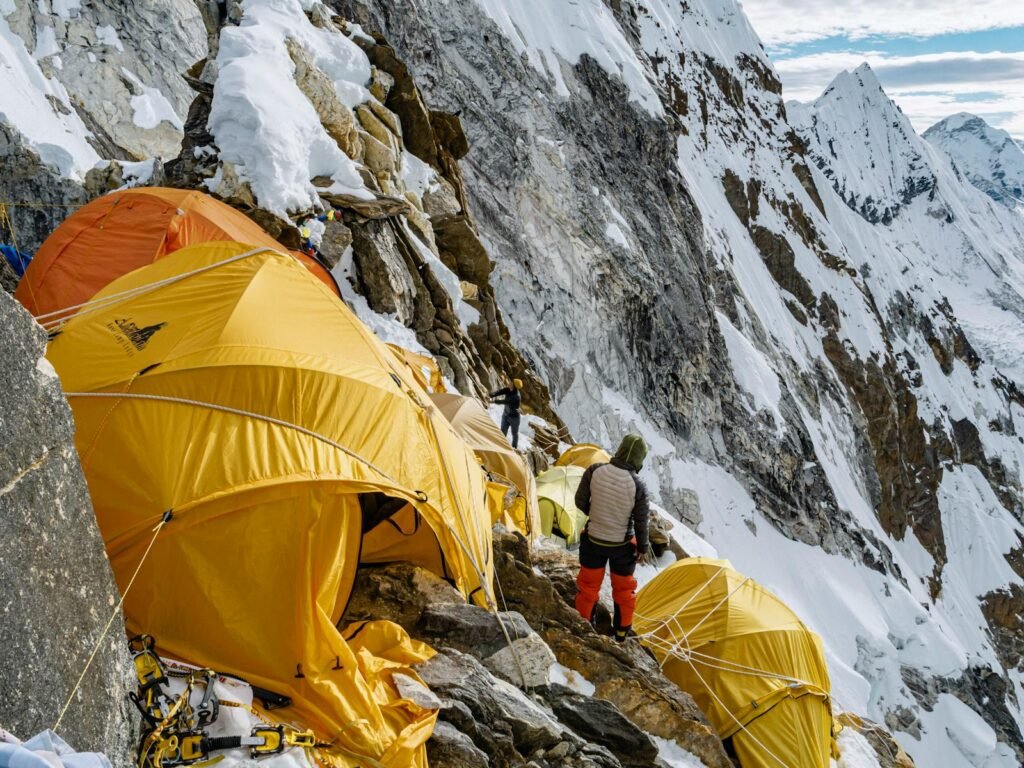
🌄 6. Skardu & Shigar (Gilgit-Baltistan)
- Home to Shangrila Lake, Sadpara Lake, and Shigar Fort.
- Cold desert landscapes and stunning high-altitude plateaus.
- Gateway to some of the world’s highest peaks, like K2.
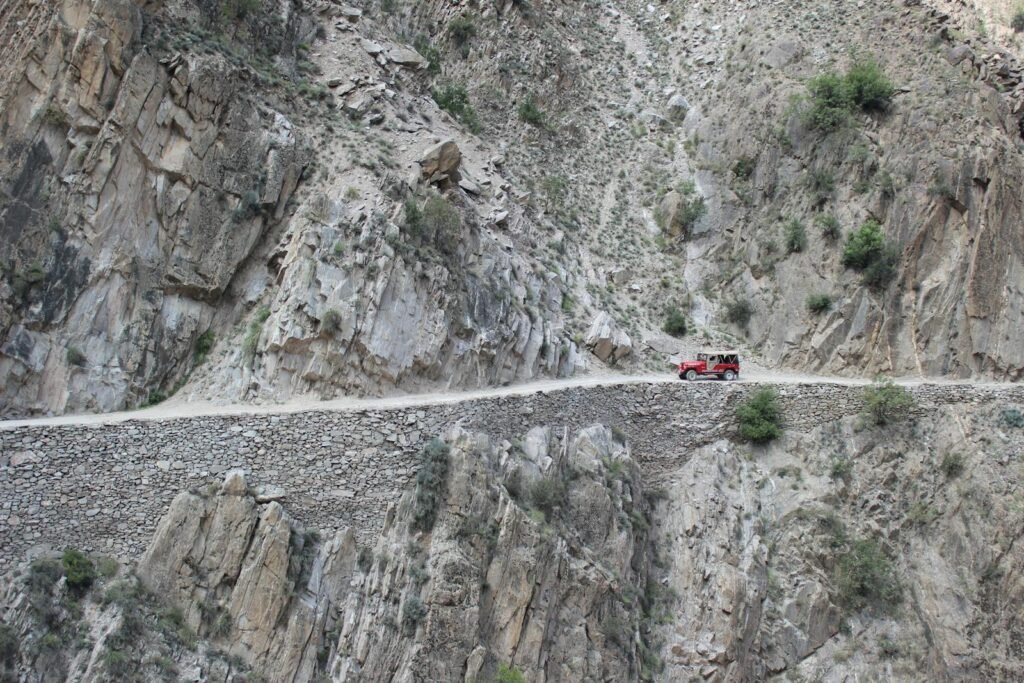

🌿 7. Swat Valley (Khyber Pakhtunkhwa)
- Known as the “Switzerland of the East.”
- Attractions: Malam Jabba Ski Resort, Kalam, Mahodand Lake.
- Famous for green pastures, pine forests, and snow-capped peaks.
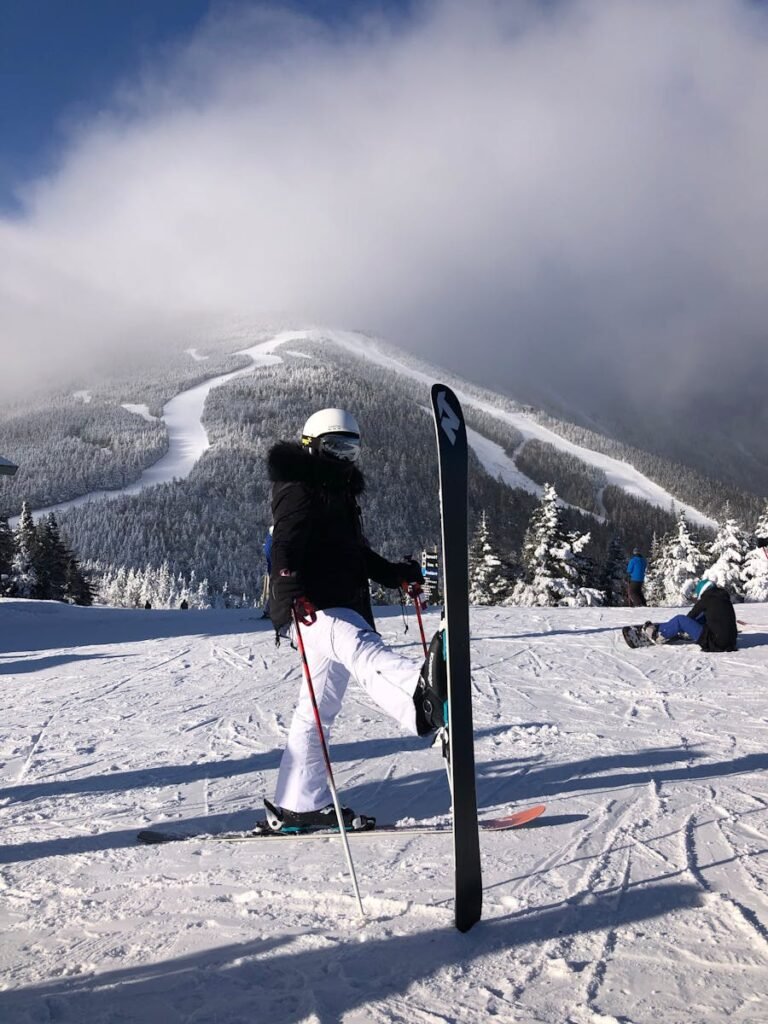
⛪ 8. Kartarpur Corridor (Punjab)
- Sacred Sikh pilgrimage site accessible to Indian nationals without a visa.
- Resting place of Guru Nanak, founder of Sikhism.
- A symbol of peace and interfaith harmony.
🕌 9. Makli Necropolis (Thatta, Sindh)
- One of the world’s largest funerary sites, with over 500,000 tombs.
- Blend of Islamic, Hindu, Persian, and Mughal architecture.
- A must-visit for lovers of heritage and history.
🧗 10. Passu Glacier & Suspension Bridge (Hunza)
- Experience adrenaline with one of the world’s most dangerous footbridges.
- Panoramic views of Passu Glacier and surrounding valleys.
- Great for photography and thrill-seekers.
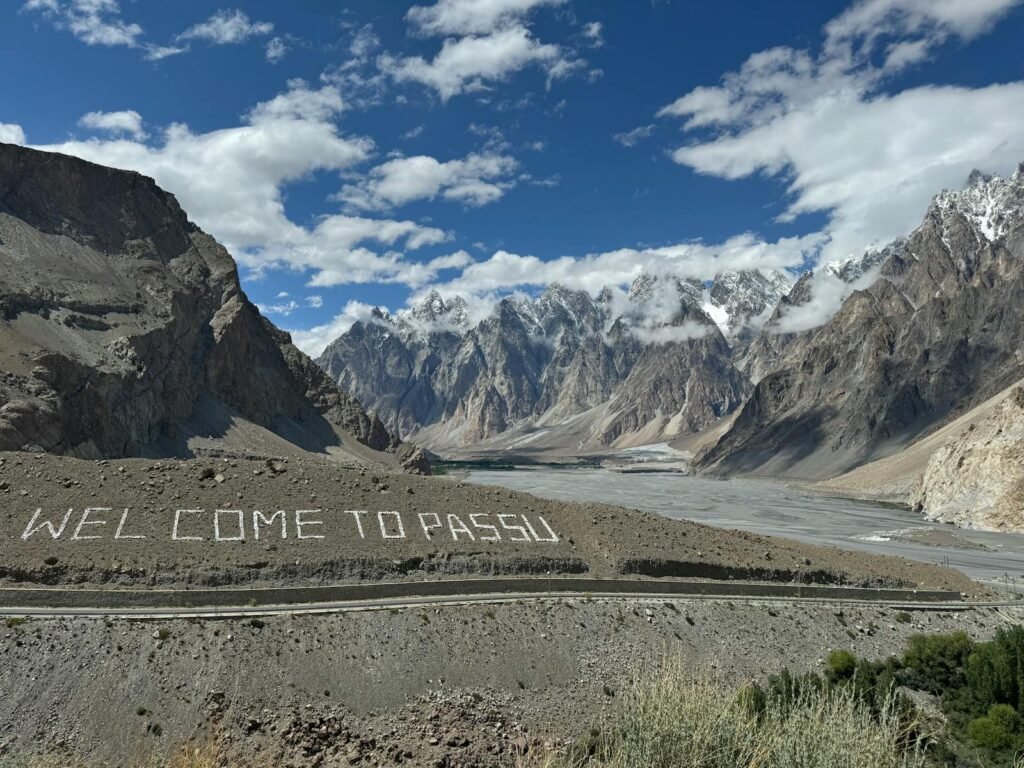
🎭 11. Walled City of Lahore
- Explore narrow alleys, colorful havelis, and restored royal bathhouses.
- Food lovers’ paradise with authentic desi flavors.
- It provides cultural tours, rickshaw rides, and storytelling experiences.

🎆 12. Wagah Border Flag Ceremony
- There is a daily military ceremony between India and Pakistan that exudes a strong sense of patriotism.
- Located near Lahore, it is a must-watch spectacle of national pride.
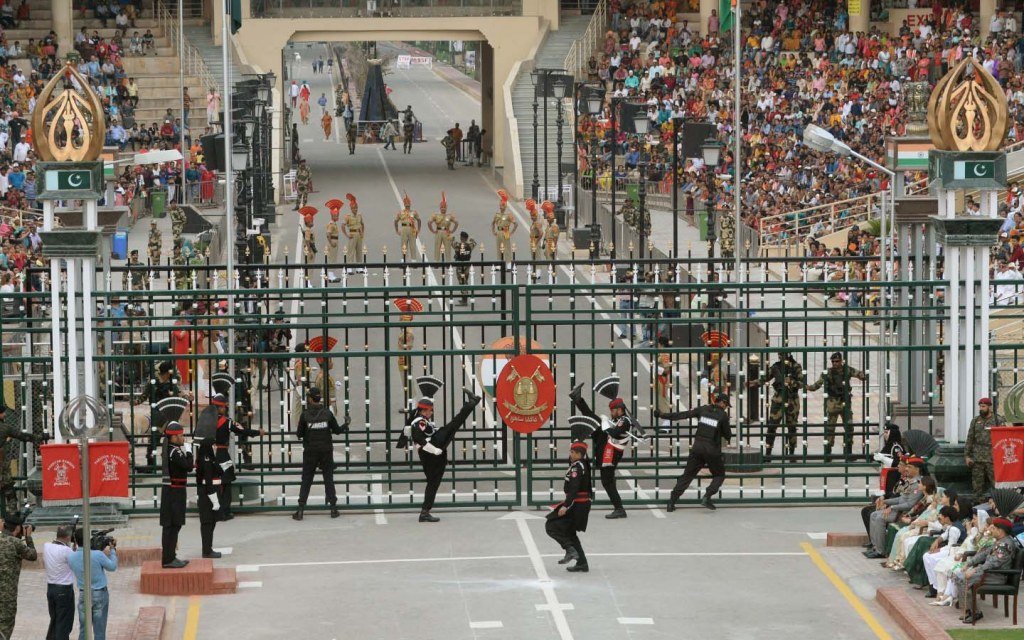
🌸 13. Kalash Valley (Chitral)
- Home to the indigenous Kalasha people with a unique culture and language.
- The region is renowned for its spring (Chilimjusht) and harvest (Uchal) festivals.
- Remote yet rewarding for cultural immersion.

🧭 Unique Experiences in Pakistan
- 🚂 Train Ride through Bolan Pass (Balochistan) – A dramatic rail journey through tunnels and gorges.
- 🛶 Boating on Attabad Lake – Formed from a massive landslide, now a turquoise gem.
- 🛍️ Bargaining in Anarkali Bazaar (Lahore) – For handicrafts, clothes, and antiques.
- 🎢 Chairlift at Patriata (Murree) – Scenic cable car in pine-covered hills.
- 🔭 Stargazing in Deosai Plains – One of the highest plateaus on Earth with unmatched night skies.
- 🎨 Truck Art Workshops – Paint your own souvenir in Karachi or Lahore.
🎒 Traveler Requirements
Before setting out to explore Pakistan, travelers should be prepared with essentials that ensure a comfortable, respectful, and safe journey. From packing the right gear to understanding cultural etiquette, this section covers everything visitors need to know in advance.
🧳 Packing Essentials
Be sure to pack with regional weather, cultural norms, and terrain in mind. Here’s a comprehensive list:
🧥 Clothing
- Light cotton clothes for cities in summer (May–August)
- Warm layers for northern areas (Gilgit-Baltistan, Swat, Murree)
- Modest attire for visiting mosques and conservative regions
- Comfortable hiking shoes for trekking or walking tours
- Rain jacket/umbrella if visiting during monsoon (July–September)
💼 Travel Gear
- Daypack/backpack for hikes or day tours
- Power bank and universal adapter
- Sunglasses, sunscreen, and insect repellent
- Travel locks and packing cubes
- Filtered water bottle or purification tablets (especially for remote areas)
🧾 Documents
- Passport (valid for at least 6 months)
- Visa (pre-approved or e-visa)
- Copies of ID, hotel bookings, and emergency contacts
- Travel insurance (strongly recommended)
🕌 Local Etiquette & Cultural Preparation
Pakistan is a culturally rich and traditional country. Understanding local customs is key to respectful and smooth travel.
🙏 General Etiquette
- Greet people with “As-Salamu Alaikum” (peace be upon you)
- Avoid public displays of affection
- Use the right hand for eating and shaking hands
- Remove shoes before entering a mosque or someone’s home
👗 Dress Code
- Women: Wear long sleeves, loose trousers or full-length skirts, and bring a scarf (especially in rural areas or religious sites)
- Men: Avoid shorts in conservative areas; polo shirts and jeans are acceptable
🛐 Religious Observance
- Be respectful during prayer times and the holy month of Ramadan
- Avoid eating, drinking, or smoking in public during daylight in Ramadan
💉 Health & Vaccination Prep
Some areas in Pakistan may require precautions for food, water, and health. Prepare by:
- Visiting a travel clinic 4–6 weeks before departure
- Ensuring routine vaccines are up to date (MMR, DPT, polio, flu)
- Getting travel-specific vaccinations:
- Typhoid
- Hepatitis A & B
- Tetanus
- Rabies (if visiting rural/animal-heavy areas)
- Carrying basic medicines (pain relievers, anti-diarrheals, rehydration salts)
💵 Currency & Budget Tips
- Currency: Pakistani Rupee (PKR)
- Budget Range:
- Budget: $20–30/day (hostels, local food, buses)
- Mid-range: $40–70/day (3-star hotels, taxis, tours)
- Luxury: $100–300+/day (5-star, private guides, flights)
💳 Money Handling
- Use ATMs in major cities only
- Keep cash for rural and mountainous areas
- Exchange currency at official money changers or banks
- Tipping is appreciated (5–10% in restaurants or for guides)
📱 Connectivity & SIM Cards
- Buy a local SIM card (Zong, Jazz, Telenor, or Ufone) at the airport or service centre.
- Registration requires passport and a photograph
- Internet is available in most urban areas, though limited in remote valleys
🛂 Legal & Safety Information
Understanding the legal framework, entry requirements, and safety norms in Pakistan is essential for a smooth, enjoyable visit. This section outlines the most important legal, cultural, and health-related precautions every traveler should be aware of.
✈️ Visa Requirements
🗂️ Who Needs a Visa?
- Most international travelers need a visa to enter Pakistan.
- E-Visa is available for over 175 countries and can be obtained via:
🔗 Pakistan Online Visa System – https://visa.nadra.gov.pk
📋 Required Documents:
- Valid passport (at least 6 months validity)
- Recent passport-sized photo
- Flight and hotel booking confirmations
- Invitation letter (if applicable)
- Payment of visa fees online
⏱️ Visa Processing Time:
- Typically 5–10 business days
- Urgent processing may be available at additional cost
🧭 Regional Entry Permits (Special Areas)
Some regions in Pakistan—especially in Gilgit-Baltistan, Azad Kashmir, and border zones—require special permissions.
- NOC (No Objection Certificate): Required for travel to some border areas (e.g., Siachen, restricted parts of Chitral)
- Tour operators can help acquire these if needed
- Always check current requirements with local tourism departments or embassy websites
⚖️ Local Laws & Conduct
Travelers must respect local laws, many of which differ significantly from those in Western countries:
🧑⚖️ General Rules
- Drug possession is strictly prohibited and can lead to severe penalties
- Alcohol is restricted to non-Muslims and only available at licensed hotels
- Gambling, public nudity, and offensive language are punishable offenses
- Avoid discussing sensitive topics like religion, military, or politics
🕌 Religious Sensitivity
- Never disrespect the Prophet Muhammad (PBUH) or Islamic practices
- Dress modestly near mosques, shrines, or during religious events
- Ask permission before photographing people or religious sites
🚨 Safety Tips for Tourists
👮 Security Situation
- Major cities like Lahore, Islamabad, and Karachi are generally safe
- Northern regions (Gilgit-Baltistan, Swat, Hunza) are also tourist-friendly
- Avoid travel to:
- Balochistan (Quetta, border areas) without proper security clearance
- Areas near the Afghanistan or Iran borders
🛡️ General Safety Practices
- Register with your embassy upon arrival
- Use registered guides and official transport
- Avoid traveling alone at night, especially in rural areas
- Share your itinerary with someone back home
🏥 Health Guidelines
🦠 COVID-19 Guidelines
- COVID-19 travel restrictions have eased, but carry:
- Proof of vaccination
- Mask for airports and hospitals
- Always check: Pakistan Ministry of Health – http://www.nhsrc.gov.pk
🦟 Disease Prevention
- Carry mosquito repellent to prevent dengue and malaria
- Drink bottled or filtered water
- Use hand sanitizers and avoid uncooked street food
📞 Emergency Contacts
| Service | Number |
|---|---|
| Police | 15 |
| Ambulance | 115 |
| Fire Brigade | 16 |
| Tourism Helpline | 1422 (NTCB) |
| Edhi Emergency | 115 |
| Foreign Embassy | Varies – Check website |
❓Frequently Asked Questions (FAQs)
This section answers common queries to help travelers prepare confidently and safely for their trip to Pakistan.
🇵🇰 Is Pakistan Safe for Tourists in 2025?
Yes, Pakistan is safe for tourists in most areas, particularly popular destinations like Hunza, Skardu, Lahore, and Islamabad. Travelers should avoid border regions or politically sensitive areas unless traveling with a certified tour operator.
🧳 What Should I Pack for a Trip to Pakistan?
- Lightweight cotton clothes (summer)
- Warm layers (northern & winter travel)
- Modest attire for religious sites
- Hiking shoes, sunscreen, reusable water bottle
- Power adapter (Type C or D)
🌐 Is English Spoken in Pakistan?
Yes, English is widely spoken in major cities, hotels, and tourist areas. Most road signs and official documents are bilingual (English and Urdu). However, learning a few Urdu phrases is appreciated.
💸 What Currency is Used, and Can I Use Credit Cards?
- Local currency: Pakistani Rupee (PKR)
- Major cities accept Visa/MasterCard in hotels, restaurants, and malls
- Carry cash for rural areas and local markets
- ATMs are widely available in cities
📱 Can I Use My Mobile Phone in Pakistan?
Yes. Most international phones work in Pakistan, but it’s recommended to:
- Buy a local SIM (e.g., Jazz, Zong, Ufone, Telenor)
- Register your phone with PTA via DIRBS on arrival
🔗 https://dirbs.pta.gov.pk
🕌 What’s the Dress Code for Tourists in Pakistan?
- Modest clothing is encouraged, especially for women
- Avoid sleeveless tops and shorts in public
- Head covering is required for women entering mosques/shrines
- Men should avoid sleeveless shirts at religious places
🚕 What Are the Best Transportation Options?
- For cities: Ride-hailing apps like Careem, InDrive, and Uber
- For intercity: Buses (Daewoo, Faisal Movers), trains, or domestic flights
- For northern travel: Hire a 4×4 vehicle or use local tour operators
🏔️ When Is the Best Time to Visit Northern Pakistan?
- Spring (April–June) and Autumn (September–October) are ideal
- Summer (July–August) is popular but busier
- Winters can be harsh, especially in mountainous areas
📅 How Long Should I Stay in Pakistan to Explore Key Destinations?
A 10–14 day trip is ideal for visiting:
- Northern gems like Hunza, Skardu, and Fairy Meadows
- Cultural cities like Lahore, Islamabad, and Taxila
- Add a few days for Karachi and the south if desired
📷 Can I Take Photos Freely?
Yes, photography is generally allowed, but:
- Ask permission before photographing locals, especially women
- Avoid photographing military sites, checkpoints, or border areas
- Drones are allowed only with prior government approval
🕌 Are There Religious Restrictions for Non-Muslim Visitors?
- Non-Muslims are welcome to visit Pakistan
- Respect is expected at religious sites
- Alcohol is legally restricted but may be available at some hotels for non-Muslims
🔁 Refund and Cancellation Policies
Understanding refund and cancellation policies can save travelers both money and stress. This section outlines what to expect when booking accommodations, tours, and transportation within Pakistan.
🏨 Hotel & Guesthouse Cancellations
- Standard Hotels: Most hotels offer free cancellation up to 24–72 hours before check-in.
- Boutique/Local Guesthouses: Often have stricter policies — check cancellation windows before booking.
- Peak Season Policy: During high-demand months (June–August), many hotels enforce non-refundable bookings.
✔️ Always confirm the property’s cancellation policy at the time of booking.
🚌 Tour Operator Policies
- Local tour companies often require a 20–50% deposit, which may or may not be refundable.
- Full refunds are typically offered if cancellation is made 7–14 days in advance.
- Last-minute cancellations (within 3 days) may incur full charges.
📞 Contact the tour operator directly for exact terms.
✈️ Flights and Transport
- Domestic Flights (e.g., PIA, Serene Air):
- Economy tickets are non-refundable unless they are purchased with flexibility.
- Some airlines allow rebooking with a fee.
- Bus/Train Tickets:
- Typically non-refundable, but rescheduling may be allowed within a short window.
- Use official portals for secure booking.
🔗 Pakistan Railways Official Booking
🔗 PIA – Pakistan International Airlines
📅 Tour Packages & Online Platforms
- Platforms like Booking.com, Agoda, and Expedia have their own cancellation windows.
- Read the “Cancellation Policy” section before confirming.
- Most offer partial or full refunds depending on the policy chosen at checkout.
⚠️ Force Majeure Clause
Most travel service providers include a clause for:
- Political unrest
- Natural disasters (e.g., landslides in the north)
- Pandemics or government travel bans
👉 Refunds in such cases vary and may depend on local law and provider discretion.
🚫 No-Exceptions Clauses
Some bookings—especially discounted or limited-time offers—clearly state:
“This booking is non-refundable and non-changeable under any circumstances.”
Always carefully review the fine print, particularly during periods of high travel demand..
🏁 Conclusion, Tags & Call-to-Action
✅ Conclusion
Pakistan is an unexplored wonderland for many international travelers. From the majestic Karakoram peaks to the historical ruins of Mohenjo-Daro, the country offers something for everyone — be it adventure, culture, spirituality, or serenity. Visitors will be awestruck by the contrast of landscapes, the hospitality of locals, and the rich cultural experiences that define Pakistan’s essence.
Whether you are hiking in Hunza, exploring the bustling streets of Lahore, or stargazing in the Balochistan desert, Pakistan rewards every traveler with unforgettable moments and untold stories. It’s a destination that surprises, humbles, and deeply inspires.
📣 Call-to-Action (CTA)
💼 Ready to explore the hidden gems of Pakistan?
Book your next unforgettable adventure now! Whether you’re a solo backpacker, a family traveler, or part of a cultural tour, Pakistan has an experience designed just for you.
📩 For customized travel packages, hotel reservations, and itinerary assistance, contact us today and let our travel experts guide your journey into the heart of Pakistan.
🔗 Contact Us | 📞 +92-XXX-XXXXXXX | ✉️ travel@pakistanjourneys.com

